Keiko Yukishiro
Nascimento : 1933-03-20, Kanagawa Prefecture, Japan

Sato Kawai

Bloody Account of Jirocho: Duel at Fujimi Pass
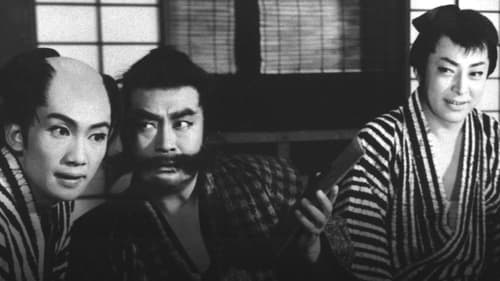
Kota and Kosuke, from the Hikyaku-ya shop in Edo, went to Kyoto. Contrary to their carefree appearance, they carry a secret letter concerning the Aoba clan from Kyoto. A samurai who calls himself Okuma Danemon joins them on their journey, and soon people begin to appear one after another, seeking to get a secret letter...

Popular geisha Koharu suspects that Yusaku, a handsome stranger she falls in love with, is involved in a robbery of precious diamond.
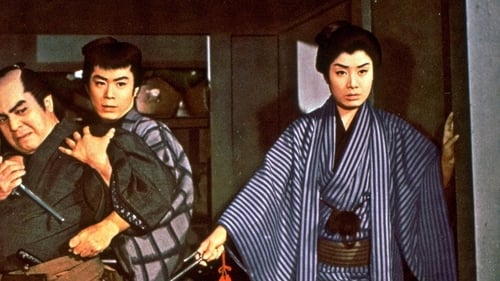
Oritsu
The death of a samurai in a palanquin leads girl detective Oshichi to take action to crush a plot to overthrow the Shogunate.

Early film by Eiichi Kudô.

Young geisha Kohana scrambles to realize her dream of bringing back her grandmother’s restaurant business.

While on the road, famed Yakuza Boss Jirocho is falsely accused of starting a peasant's uprising and chased by the law. Meanwhile, one of his henchmen in an attempt to raise money for the Boss gambles away not only all their funds, but their clothing as well. Jirocho, famed for his honesty and integrity must take on the challenge of rival gangs while trying to elude the government's officials at the same time. Things really heat up when the most famous of all Yakuza Bosses, Chuji of Kunisada gets involved. Will he team up with his old friend or is gang warfare about to erupt?

Two siblings try to unveil the secrets behind a mysterious coin found at a murder scene.

The adopted son of an Osaka courier falls in love with a prostitute and, discovering that she is about to be purchased by a client, steals money from his employer to redeem her. Hunted criminals, the two young lovers take flight to Yamato, but, as in Chikamatsu's other domestic tragedies of love and duty (known as sewamono), they must be pursued and their passion destroyed by death. Favourite Uchida themes, such as the indenturing of a prostitute (cf. YOSHIWARA; A BLOODY SPEAR AT MT. FUJI), and his characteristic emphasis on performance and theatrical artifice re-emerge here; but the daring device of having Chikamatsu appear as a character - not unlike having Shakespeare interpolated into a film adaptation of one of his plays - is just one of many surprises this remarkable film holds. “Extraordinary” (Donald Richie).
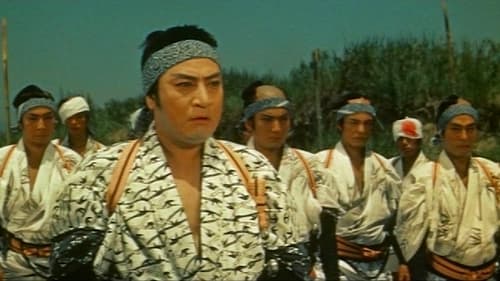
One of the great stories from Japan’s rich history comes to life in this true tale of the bloody showdown between two rival yakuza gangs in the 1840’s. The battle between Boss Sukegoro of Iioka and Boss Shigezo of Sasagawa has been portrayed many times, most notably in the first Zatoichi film, where the blind man befriends the tubercular ronin Hirate Miki, before cutting him down in one of the great duels in cinema history. This all-star extravaganza pulls out all the stops, with appearances by virtually all of the great actors and actresses from Toei’s studio at the time. Ichikawa Utaemon’s portrayal of the kind-hearted, noble yakuza boss Shigezo of Sasagawa contrasts sharply with the devious Sukegoro of Iioka. Corrupt as he may have been, his men were all willing to give up their lives for him.

It's an extravaganza of entertainment as famous magistrate in disguise, Toyama no Kinshiro attempts to confront the elusive thief known as the "Long-Sleeve Burglar". Played to the hilt by Misora Hibari in a delightful performance highlighted by singing, dancing, and swordplay with a unique story within a story twist that starts to unfold in the city jail as a playwright is brought into custody and meets the famed Long-Sleeve Burglar himself. Misora Hibari is totally captivating in this gender bending role as the famed thief whose expoits can only be stopped by the great Kin-san himself!

A young, feisty woman named Osome searches for her true love in the midst of a family crisis.

Featuring some of the finest swordsmen ever to grace the silver screen, this Toei classic tells the story of a battle between the evil sword style called ”Otonashi” (The Silent Form) and the proper way of swordsmanship as promoted by such historical stalwarts as Shimada Toranosuke, and the mysterious Honda Sakon, who face off against a group masquerading as the lord of Mito and his traveling bodyguards Suke-san and Kaku-san. The plot thickens as their leader unveils his secret plan to disrupt the stability of the nation. It is all in the name of swordsmanship, and as the title implies there are no stronger swordsmen!

Five swordsmen are murdered and hung from a tree and the chase is on to find the killers. Two magistrates pursue the leads to solve the crime and it leads to a potential conspiracy to kill the Shogun.
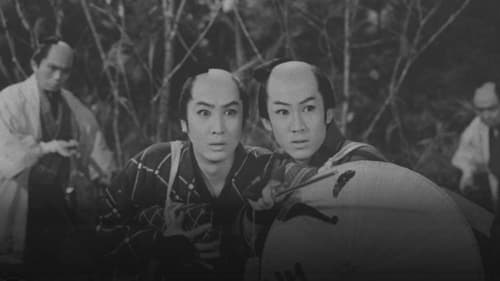
Two thrill seeking young lords sneak out of their castles and travel under the disguise of townsmen.
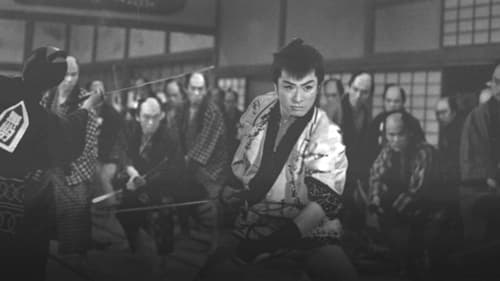
With the help of famous yakuza Jirocho, brave and quick tempered Eijiro takes revenge on the death of his close friend.

Okoma
Four thousand gold coins were stolen from the vault of Nijo Castle in Kyoto, which were collected as a tax to the shogun. The guard of Nijo castle Asaka Keinosuke, disguised as a komuso monk, proceeds to investigate the theft, traces of thieves lead to Edo, where Asaka goes.

Sinza who is secretly the well known "Sea Glow Burglar", gives to the poor the money he takes from the bad lords and greedy merchants, who live just to exploit the poor for their small coins. On his travel he meets a man and his little girl Onatsu. The man gets ambushed and killed in front of his daughter, so Sinza promises the man he will take his daughter safely to their destination, so the little girl is now his responsibility. The kind, non-violent Sinza now finds himself entangled in something far bigger than he expected.
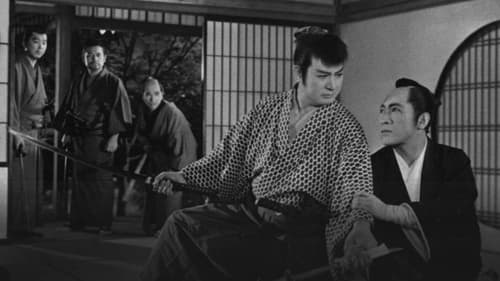
Bright samurai movie innovatively adapted from a classic story. A traveling masterless samurai is asked by a daughter of an established samurai family to pretend they are a married couple, and gets involved in the troubles of the samurai clan.

Two guardians of the Nijo Castle, Shioya and Kamazawa, discover a map leading to a secret passage to Edo Castle. Instead of reporting their find to local authorities, they decide to blackmail the lords who created the forbidden passage. To prove their crime, Magistrate Toyama Kinshiro launches a private undercover investigation.

Following a yearlong attendance upon his shogun in Edo, samurai Hikokuro makes a long-awaited return to his home and doting wife, Dane. Initially greeted by the effusive welcome of his family, spiteful whispers also reach his ear about an adulterous affair carried on, in his long absence, between his wife and a famous drummer. With Hikokuro’s honor imperiled by rumor, his family insists on a formal investigation into the veracity of the gossip. Through the combined testimony of many witnesses, a tale unwinds around the visits of a traveling musician hired to tutor the family heir, the spurned attentions of the man who started the rumor, and the ultimate truth behind the accusations. The conclusion of events prove as much an indictment of bushidō as it is of the reluctant parties involved. Adapted from a 1706 play by Chikamatsu Monzaemon and based on a true case.

Kiwako

Omasa
Classic kaidan ghost story from the Edo period

After killing the deceiver, the Masa gambler comes to Ina. There is a horse market in Ina, and the landowner Tamegoro, plans to steal the proceeds from the sale. Tamegoro steals money and blames the Masa for this crime. Masa has to go on the run, because now he is wanted for a crime that he did not commit...

A film about the struggle of an officer from Edo, Toyama Saemon, with a lightning-fast gang of thieves.
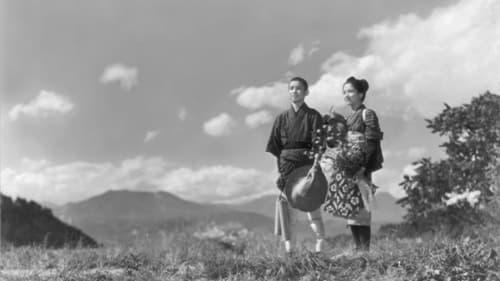
Tamiko's older sister
Now an old man, Masao returns to his childhood home and begins to recall his upbringing in this abandoned sector of Japan.

The Kumakichi Ishida family lived happily in a small house in Shibuya while their mansion in Azabu was requisitioned by the occupation forces. When the residence is released to them, Mrs. Ishida wants to turn it into a Western style hotel to recoup their fortunes, but returns to Shibuya, swindled and sober.

A samurai detective film.

An adaptation of the Kawabata Yasunari short story.




















